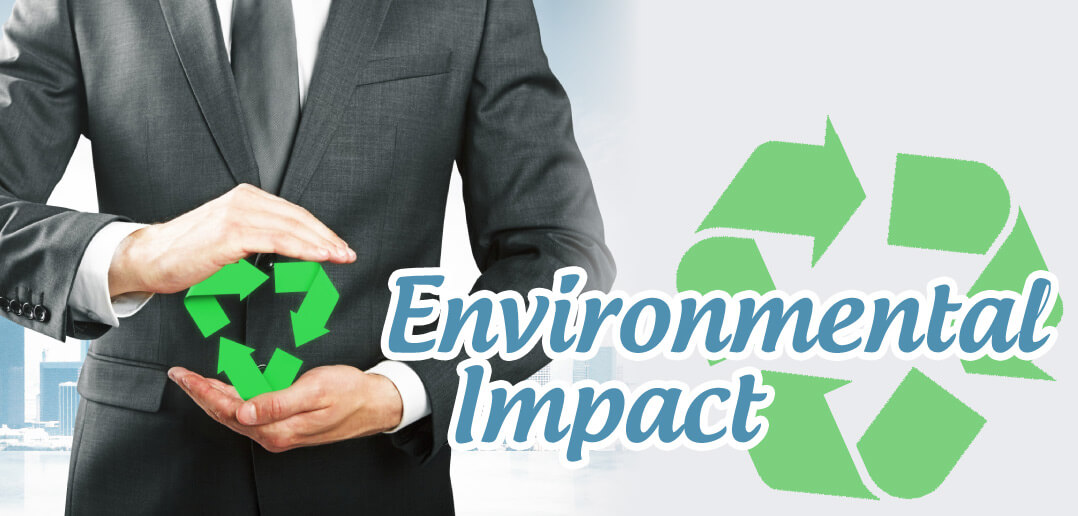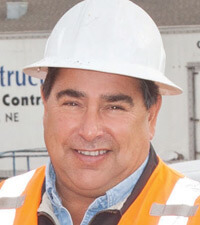Environmental Impact in Lincoln, NE – 2017
For businesses and individuals alike, accountability with respect to the impact we each have on the environment is what will determine our collective future. We all have the power to make a difference, and taking action of any kind is a step in the right direction. Many times these efforts also have benefits attached that extend past reducing our environmental footprint, such as creating greater efficiencies or monetary savings, making them worthwhile all around.
Specifically regarding environmentally-friendly practices implemented in business operations, the buzz right now here in Lincoln, NE is certainly the impending cardboard ban. We’ve consulted with a few local business and organizations to find out exactly what you need to know in order to take the appropriate action in the coming months.
Sustainable business practices don’t stop there though, so we’ve also highlighted another prominent business in our community that offers innovative recycling services and green buildings to give you an idea of the possibilities that exist here at the local level.
First though, let’s explore the cardboard ban.
“The cardboard ban will take effect on April 1, 2018,” advises Julie Diegel with the Nebraska Recycling Council. “Corrugated cardboard is the only material that will be banned from the landfill at the present time. It is defined as three or more layers of paper with at least one layer of rippled (corrugated) paper. Cardboard soiled with food wastes or oils, and cardboard that is completely wet, is not recyclable and can be landfilled or composted. Waste haulers are obligated to ensure that cardboard is not entering the landfill, and will be assessed a fee if their loads are contaminated with cardboard. The City will not ticket businesses, only haulers.
Businesses must subscribe to a recycling collection service or take their cardboard directly to a recycling processor. They are not allowed to use the residential recycling drop-off sites scattered around the city. Businesses have the option of getting financial assistance from the City of Lincoln through their WRAPP program. You can learn more about it online at www.lincoln.ne.gov/city/pworks/solid-waste/recycle/wrrap/. A rebate of up to $750, in total, is available for start-up costs related to the purchase of containers or physical improvements, waste composition assessments and educational materials, and the cost of monthly recycling or composting collection services for the first six months. Also, the Nebraska Recycling Council has equipment grants available of up to $15,000 that can be used for recycling equipment as well as container and label purchases. Information can be found at www.nrene.org/equipment-grants. Restrictions apply.
It’s important to note that the ban doesn’t just apply to businesses – everyone whose waste is hauled to the Bluff Road Landfill will be affected by the disposal ban. Residents have the option of subscribing to a curbside recycling collection service or taking it to one of the public recycling drop-off sites. Waste haulers in Lincoln offer recycling collection services, so residents may add the service on to their existing trash collection service or subscribe independent of their trash collector.”
She concludes, “Lincoln has improved its cultural offerings and visual appearance dramatically in recent years, and has developed a reputation as a progressive, attractive city. This culture is appealing to youth, families and businesses. In order to stay on this upward trajectory, it is important that citizens who share these benefits also take responsibility by responding to the challenges of our times. We need to re-think and reduce the negative impacts human beings have on life-supporting natural systems, locally and globally. Keeping cardboard out of the landfill is a simple, but highly effective step in the right direction.”
Implementing a program that works for your business, and your bottom line, is entirely possible. Right now there is time to plan accordingly, so it’s a good idea to consult with a variety of resources to see what they are offering and if that aligns best with your specific needs.
“When discussing waste costs and recycling with businesses, most business owners will know off the top of their heads what their overhead costs run, what their payroll runs, and what the bottom line looks like, but when asked about waste costs they have no idea,” notes Dianna Johnson with Mil-tek Central Recycling and Waste Solutions. “Currently, Lincoln has had the luxury of relatively inexpensive waste hauling as compared to much of the US. And in Nebraska, we have been blessed with having large amounts of land for landfills, making recycling less of a concern. Although individual businesses will not be directly fined for allowing cardboard into their waste streams, their waste haulers will be fined, and those costs will be reflected back to the business community. Waste costs and recycling then begins to become much more relevant. Waste costs will continue to rise as businesses find themselves adding more dumpsters, more weekly pickups, additional tip charges and fines.
Businesses that are proactive can begin to take a look at their waste costs, operations, and procedures around handling waste. There are a number of different options that can be used to recycle cardboard and many do not include having to add dumpsters in an already crowded alley or trash corral. For example, there are different types and sizes of balers and compactors that can significantly enhance the recycling efforts of all sizes and types of businesses. You don’t want to wait until the last minute to begin to take a look at this as resources will become more limited as deadlines become closer.”
She adds, “Most businesses and individuals don’t really know the full extent of the potential impact recycling can have on our environment. For example, by recycling one ton of cardboard it saves 46 gallons of oil, 390 kilowatts of electricity, and 9 cubic yards of landfill space. With 90% of all products shipped in the U.S. shipped in corrugated cardboard, it equals out to more than 400 billion sq. ft. of cardboard annually. That being said, cardboard and paper waste make up 41% of the municipal solid waste stream. If we use recycled cardboard to make new cardboard it takes 24% less energy and procedures than making cardboard from raw materials.
In addition to just knowing the impact that recycling cardboard can have there are a number of things businesses can do to improve their recycling efforts. Putting together green teams within organizations that are focused on making a difference in the world and are dedicated to recycling efforts or just making things cleaner, neater and greener for organizations can have a significant impact on moving businesses toward change. In addition to cardboard, many other things within businesses are recyclable such as but not limited to paper, bottles, plastics, Styrofoam, cans etc.
Become a member of the Nebraska Recycling Council. Keep track of recycling volumes. Celebrate successes. It feels good to save hundreds of trees and gallons of oil. It is powerful to have a certificate in a business that says together we saved 250 trees this year! Collaborate with neighboring businesses in possibly sharing a small baler for baling cardboard. Work with local recyclers. Donate funds generated by recyclables to non-profits organizations to support their causes. Help clean up alleyways and waste corral areas by recycling and eliminating dumpsters. Mil-tek Central offers free waste consultative services to help business save money and recycle, and we’d be happy to help you take a look at how you can implement a program or improve upon your existing one.
In a recent survey customers and employees were asked why they continued to frequent or work at the businesses they do. In the top five answers were safety, cleanliness of the facility, and sustainability efforts. Recycling truly makes a difference in retaining and attracting new customers and employees.”
Kelley McReynolds with Mid America Recycling further emphasizes, “Employee education and involvement is vital to the success of recycling programs. Employers should provide clearly marked receptacles and good visible signage showing pictures of what may and may not go into the receptacle. Businesses should also encourage employees to recycle at home like they do at work. At Mid America Recycling, we encourage recycling at home as a way to earn points in our health and wellness program.
Furthermore, businesses and residents participating in a single stream program should keep an open line of communication with their preferred hauler. If there is a material that is not accepted by your hauler, there’s a good reason for it. Including materials that are not accepted makes the whole process more difficult. Entire loads of recyclables could end up in the landfill due to contamination from unwanted materials since the sorting and recycling process would more expensive than the value of the recyclables. The City of Lincoln will be doing a nice environmental education campaign in 2018. As part of that campaign, there will be a lot of recycling education to help clear up confusion surrounding which materials are accepted and which are not.
It is our responsibility to preserve our planet for future generations. Recycling is one of the easiest and most readily available ways to help conserve natural resources and protect the planet.”
While cardboard recycling has attracted much of the attention of our local businesses, as previously mentioned, there are a multitude of other ways to make recycling a part of your waste management plan, and extending beyond that to other aspects of operations as well.
For example, TCW Construction has a concrete recycling operation that to date has made a huge impact on our environment.
“We crush concrete and turn it into a reusable product for our customers,” explains Joe Delgado with TCW Construction. “The crusher site at 3rd and West P Street has been crushing concrete rubble from projects like Lincoln Airport, Offutt Air Force Base, and multiple city and state projects in and around the Lincoln area. The end product is then used in new construction projects as an aggregate base for new roadways or bedding foundation to lay underground utilities. We also offer crushed concrete for the aggregate base on parking lots and driveways. This recycling operation alone has eliminated the need to haul thousands and thousands of tons of concrete and asphalt rubble to our landfill, saving valuable space needed for true garbage disposal and extending the life of our landfill.”
He also speaks to the challenges of adopting green practices into his operations and public awareness associated with those efforts, but also to the benefits of doing so. “Showing that we are green as a construction company is often an uphill battle, as sometimes appearances don’t exactly match up with reality. We all enjoy driving our vehicle on a smooth paved surface but unfortunately there comes a time when roads get old and need to be rebuilt or a tree is in the way of a new development and it has to come down. Lincoln continues to grow, and supply cannot keep up with demand today. It gives us peace of mind knowing we can recycle concrete rubble and reuse it. We have many customers in Lincoln and the surrounding areas come to our plant to purchase all different sizes and types of crushed concrete to help us integrate reuse of old roads. It doesn’t matter if it’s concrete or just a cinderblock you are looking to throw away, we invite you to recycle with us at TCW Construction.
We also have a Butler franchise, which makes sustainable building affordable. Butler combines the inherent green benefits of steel with the company’s own green systems and practices. The result is a building that: 1) Contains a high percentage of recycled material and is itself recyclable; 2) Optimizes the use of raw materials; 3) Is energy efficient; and 4) Can help you achieve LEED® certification.
Roughly 42% of the waste currently disposed of in landfills from Lincoln and Lancaster County is readily recyclable material, and close to half of this waste comes from businesses, industry, institutions, and multi-family housing complexes, so we should do our part.
Start with the basics of recycling in your business by providing clearly marked recyclable bins for your employees. Soon you will notice that more than half of what was going into our landfill is now being recycled. The benefits of reducing waste to our landfills, saving energy, pollution prevention, protecting our national resources, keeping our environment clean for generations to come while creating new jobs are all reasons to start recycling today. We recommend that you visit www.lincoln.ne.gov/city/pworks/solid-waste to familiarize yourself with recycling and utilize our local resources for guidance and assistance.”
As you can see, we are fortunate to have access to a variety of local resources that are here to help as we move towards making a big change in how we handle the disposal of cardboard in the coming year. Be sure to utilize them! Beyond that, there are plenty of other ways you can actively participate in protecting our environment. We are all stakeholders in this and together the positive impact we can have is tremendous, indeed.





